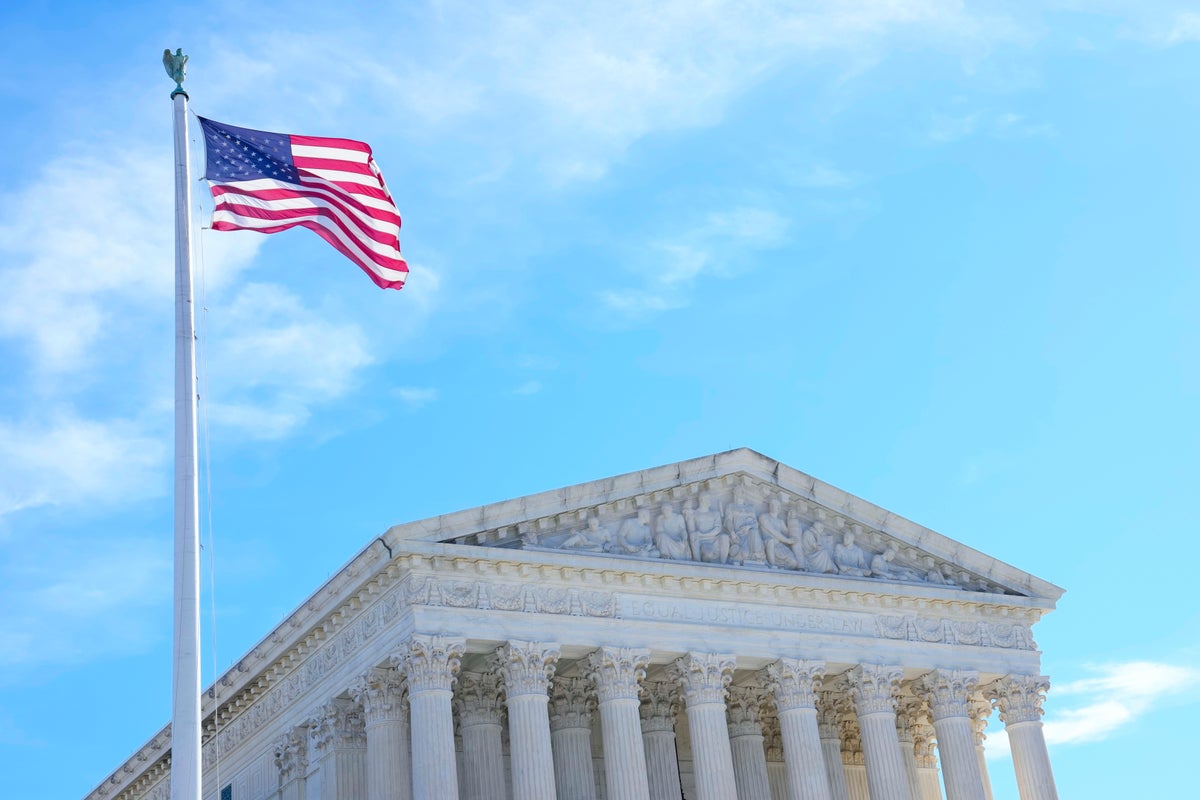
The Supreme Court is hearing arguments Wednesday in a challenge to a federal law that gives preference to Native American families in foster care and adoption proceedings of Native children.
The Indian Child Welfare Act, enacted in 1978, was meant to address concerns that Native children were being separated from their families and, too frequently, placed in non-Native homes.
It has long been championed by tribal leaders as a means of preserving their families, traditions and cultures.
But white families seeking to adopt Native children are among the challengers who say the law is impermissibly based on race, and also prevents states from considering those children's best interests.
The law's fate is in the hands of a court that has made race a focus of its current term, in cases involving the redrawing of congressional districts and affirmative action in college admissions. Two members of the court, Chief Justice John Roberts and Justice Amy Coney Barrett, also are the parents of adopted children.
The full 5th U.S. Circuit Court of Appeals struck down parts of the law last year, including preferences for placing Native children with Native adoptive families and in Native foster homes. It also said Congress overstepped its authority by imposing its will on state officials in adoption matters.
But the 5th Circuit also ruled that the law generally is based on the political relationship between the tribes and the U.S. government, not race.
The tribes and the Biden administration appealed some parts of the lower court ruling, while the white families and Texas, allied with those families, appealed others.
More than three-quarters of the 574 federally recognized tribes in the country have asked the high court to uphold the law in full, along with tribal organizations. They fear widespread impacts if the court attempts to dismantle the tribes’ status as political sovereigns.
Nearly two dozen state attorneys general across the political spectrum filed a brief in support of the law. Some of those states have codified the federal law into their own state laws.
A ruling in favor of the families and Texas could undercut the 1978 law and, the tribes fear, have broader effects on their ability to govern themselves.
When child protection authorities remove Native children from their homes, the law requires states to notify tribes and seek placement with the child’s extended family, members of the child’s tribe or other Native American families.
All of the children who have been involved in the current case at one point are enrolled or could be enrolled as Navajo, Cherokee, White Earth Band of Ojibwe and Ysleta del Sur Pueblo. Some of the adoptions have been finalized while some are still being challenged.
Before the Indian Child Welfare Act was enacted, between 25% and 35% of Native American children were being taken from their homes and placed with adoptive families, in foster care or in institutions. Most were placed with white families or in boarding schools in attempts to assimilate them.







